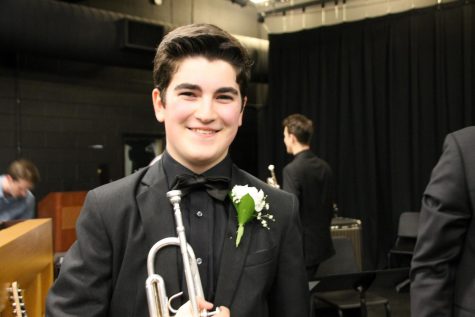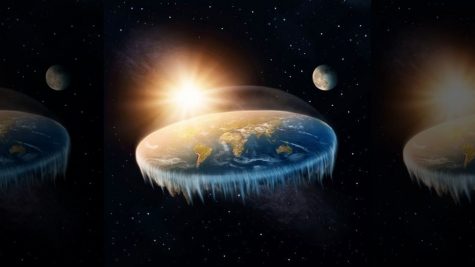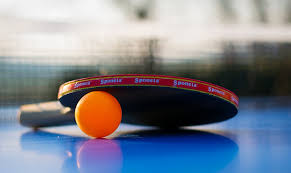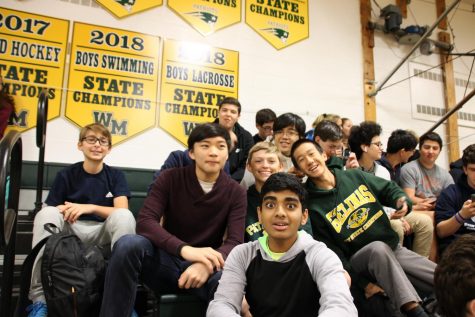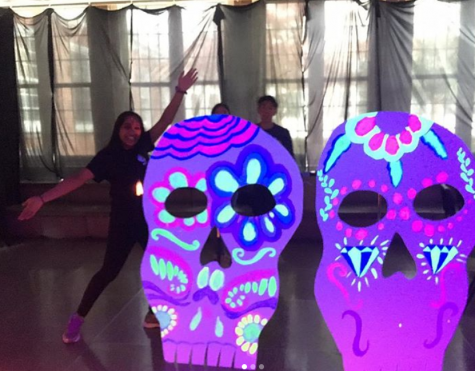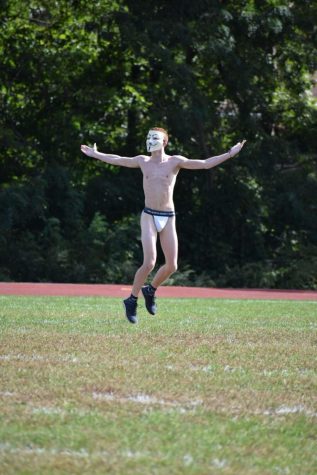Erika Riley: Ward Melville’s Distinguished Writer
April 1, 2014
Junior Erika Riley has always had an interest in writing. This year, the Scholastic Art and Writing Awards recognized one of her literary pieces, “Maps to Nowhere,” with a gold national medal in the novel category. With only four students out of the 570 novel category submissions receiving gold national medals, the highest award possible, Riley’s accomplishment is beyond sensational.
The Scholastic Art and Writing Awards in a long-standing national writing contest that originated in 1923. The awards are amongst the most prestigious writing awards that can be garnered by talented adolescents with notable past winner of the Scholastic Art and Writing Awards including Truman Capote, John Updike, Joyce Carol Oates, and Sylvia Plath.
Riley’s novel, “Maps to Nowhere,” is the conglomeration of many different ideas she has had over the past year. Riley describes the novel as “humorous yet melancholy, realistic and energetic.” The novel centers around a girl named Alice who has just completed her junior year of high school. Riley states, “Horrible things have just happened to Alice. For example, she was raped at a party and her mom just left her. These two events have both taken huge tolls on her.”
“Alice is part of this town where it is very common for people to leave,” she continues. In the book, Alice and her three friends reunite for one last “treasure hunt,” just as they used to do when they were younger.
One prevalent characteristic of the novel is the use of run-on sentences and lists that Alice makes. “The lists provide back-story or exposition, ” Riley shares. Riley also captures the true teenage voices of her protagonists. Consequently, the novel includes the profane language commonly found in daily adolescent discourse.
To submit to the contest Riley needed to have a two-page summary of the novel and a fifty-page excerpt from the novel. She submitted three different novels to the Scholastic Art and Writing Awards. She shares, “I definitely thought that this one [Maps To Nowhere], would not win anything out of the three I submitted.”
When she found out she had won the award, Riley was “beyond excited.” The first person with whom she shared the news with was her sister. Riley’s sister is one of the few people who have read the novel in its entirety. Riley shares, “my parents never pry into my writing, but after it [Maps to Nowhere] won the award, they wanted to read it.”
Riley started “Maps to Nowhere” in November, as part of the national writing novel month, and has continued working on it since then. She plans for the completed novel to be between 250 and 350 pages.
With a busy junior year schedule, Riley discloses that she usually writes, “late at night or on weekends with a movie soundtrack playing.” One rule she always follows when writing any piece is that she never bases a character solely on a specific person. Instead, she “comes up with the personality first” and then creates the character.
Always a writer, Riley completed her first novel in fifth grade; “It was a fantasy story,” she shares with a smile. However, realistic fiction is her favorite genre. Some of her literary role models include A.S. King, Melina Marchetta and Emily M. Danforth. Danforth particularly uses the run-on sentence construct prevalent in “Maps To Nowhere.”
After finishing her high school and college education, Riley plans on pursuing a career in writing. We are extremely proud of her literary achievements and wish her the best in her future endeavors.
See below for an excerpt of Erika’s Award Winning Novel:
The ride to Parker’s house is an uncomfortable one. We have to drive through fishing territory and I look at all the people out on their tiny boats, all the people sitting on the docks, mostly men, because only men go fishing and men only bring their sons. Imagine how disappointed my father was when he was left with only Paige and me.
My mom always said she hated how big our town was on fishing, but that’s just the way it goes, and I hope she’s living it up in Las Vegas or some other huge city where she will never have to endure another word about fishing and small town girls running away with men who promise to take them out of Wells, and I wonder if she’s just another one of those girls too.
Max puts on music and I pretend to be comfortable and everything is dandy as hell. The thing that I really hate is the distance between us that is so physical and mental and emotional and I know that it’s probably not my fault that I feel three thousand miles away from everybody else, and yet I know that I could put on a smile and a strong face and start trying to inhibit the flashbacks and still try in gym class, and still speak up in English class, and not watch my French teacher mumble mispronounced sentences at me, asking me if I’m alright all the damn time. The thing that I really hate the most is the fact that time will always be moving forward and we can never escape it because we are mere humans, but while most people will move along with that time and not ever care about the potential horrors of it, I am just moving backward and backward and this car is moving forward and forward and Max almost speeds through a red light.



